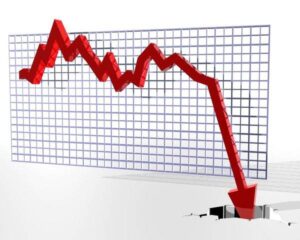How To Prepare For The Coming Recession
How To Prepare For The Coming Recession: Become An Adaptive Enterprise
Recessions are notoriously hard to predict; even top economists often miss the timing, severity, and characteristics of recessions. Yet rumblings about a 2020 recession are growing louder: 40% of top economists expect the US Federal Reserve to cut interest rates in response to a deteriorating economy over the next year, while half of European business leaders believe that a recession will happen in the next five years amid rising bad debt losses. The bond market yield curve inversion has resumed as home prices soften — both possibly portending recession.
While pinning down the timing may be difficult, we know that capital market risks, trade policy risks, political risks, and climate risks are all multiplying. Whether there’s a recession in 2019, 2020, or not for some time, there will be one eventually. So what can leaders do to prepare?

The good news is that the success factors for driving customer obsession — which allows you to survive and thrive during recession — are the same as those for nonrecessionary boom times. The key trait that companies must promote is adaptiveness, which must take root in both the technology stack and in business processes. Adaptive firms continually flex, evolve, and pivot in response to rapidly changing customer, competitive, and technology trends.
Why is adaptiveness the key? We’re living in a business environment of permanent, continuous change, with more risks and uncertainties than in the past. Driven by ever-shifting customer needs and desires — which can include changes in spending when recession hits — companies need to organize with adaptiveness in service of customer needs. We’ve just released a report, “Ten Ways To Prepare For The Next Recession,” detailing the steps that CEOs, CIOs, and other leaders can take to become adaptive — and to be ready whenever that next recession strikes. Expect more on this topic soon, as we’re finishing up a new report on the adaptive enterprise, coming in a month or so.
J. P. Gownder is a vice president and principal analyst serving CIOs. He leads Forrester’s research on the impact that automation, artificial intelligence, and robotics have on the future of work, the future of jobs, the economy, and CIO strategies. He also covers innovation in the context of disruptive devices and interfaces — from PCs to mobile devices and augmented and virtual reality (AR/VR) to software and intelligent agents — and how these technologies drive improvements in employee experience and business outcomes. Follow him on Twitter at @jgownder.
